Daily Wisdom: Enlightened Lovers, Shared Vision

Their commitment to be lovers of the world together, and not only of each other, finds a beautiful expression under the wedding canopy. In Hebrew mystical tradition, the bride and groom break a glass to conclude the ceremony. Why do we break a glass? The answer in the sources is zecher le churban ha mikadah, to remember the destruction of Temple in Jerusalem. We know that the Temple with its intertwined cherubs atop the ark is the symbol of eros and love – beyond the merely sexual. The couple is affirming the mystery of love hidden in the cherubic secret. They commit to make their lives a model for living erotically as lovers in the world.
Deeper still – the Temple is a symbol of a redeemed world. A world without stomachs distended from hunger, without soldiers killed at 18 and 19, without millions of people going to sleep alone, missing the warmth and comfort of another body. The world is filled with broken people. That is something we can never forget – especially under the wedding canopy, which is a symbol of hope and healing.
When we break the glass under the hupah, the broken pieces represent all the broken people in the world. We invite all of them, from Bosnia, Rwanda, Afghanistan, Gaza and Jerusalem to come under the canopy with us. We invite them to participate in our moment of perfect joy when we are on the inside of the inside. The newlywed couple promises never to forget the emptiness. They commit to do something in their lives to make this world a better place to live, for everyone. This is the spiritual contract entered into by every bride and groom with each other. This is shared vision.
Dr. Marc Gafni
The Erotic and the Holy

 A life well lived does not mean a life without mistakes. It means making mistakes in the right direction. A famous Talmudic passage re-read by my teacher Mordechai Lainer of Izbica says roughly as follows “One cannot follow the direction of one’s life until one first fails in pursuing that very direction.” Or in another passage, the Talmud itself writes, “The wicked falls once and does not rise, the Master falls seven times and rises each time again”.
A life well lived does not mean a life without mistakes. It means making mistakes in the right direction. A famous Talmudic passage re-read by my teacher Mordechai Lainer of Izbica says roughly as follows “One cannot follow the direction of one’s life until one first fails in pursuing that very direction.” Or in another passage, the Talmud itself writes, “The wicked falls once and does not rise, the Master falls seven times and rises each time again”.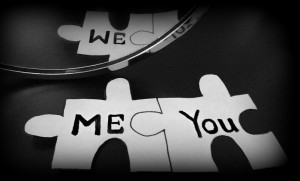
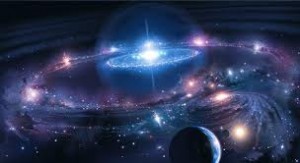 By deploying intellectual, meditative and mystical faculties, the lover of divine text moves to unpack the fresh invitation of the divine voice. The divine voice speaks presently to the individual and the community in the eternal now.
By deploying intellectual, meditative and mystical faculties, the lover of divine text moves to unpack the fresh invitation of the divine voice. The divine voice speaks presently to the individual and the community in the eternal now. But, we ask, what will happen to our drive for progress if we see all opposites are one? Well, with any luck, it will stop–and with it that peculiar discontent that thrives on the illusion that the grass is always greener on the other side of the fence. But we should be clear about this. I do not mean that we will cease making advancements of a sort in medicine, agriculture, and technology. We will only cease to harbor the illusion that happiness depends on it. For when we see through the illusions of our boundaries, we will see, here and now, the universe as Adam saw it before the Fall: an organic unity, a harmony of opposites, a melody of positive and negative, delight with the play of our vibratory existence. When the opposites are realized to be one, discord melts into concord, battles become dances, and old enemies become lovers. We are then in a position to make friends with all of our universe, and not just one half of it.
But, we ask, what will happen to our drive for progress if we see all opposites are one? Well, with any luck, it will stop–and with it that peculiar discontent that thrives on the illusion that the grass is always greener on the other side of the fence. But we should be clear about this. I do not mean that we will cease making advancements of a sort in medicine, agriculture, and technology. We will only cease to harbor the illusion that happiness depends on it. For when we see through the illusions of our boundaries, we will see, here and now, the universe as Adam saw it before the Fall: an organic unity, a harmony of opposites, a melody of positive and negative, delight with the play of our vibratory existence. When the opposites are realized to be one, discord melts into concord, battles become dances, and old enemies become lovers. We are then in a position to make friends with all of our universe, and not just one half of it.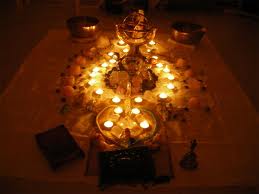 Of course, to remind another of their full beauty you have to be fully aware of your own. The Baal Shem Tov has a wonderful teaching on the biblical mandate “love your neighbor as you love yourself.” First it is a statement of fact–you love your neighbor precisely as much as you love yourself. For in the end, you can only perceive another’s greatness if you have glimpsed and believe in your own. Self-love is self-perception.
Of course, to remind another of their full beauty you have to be fully aware of your own. The Baal Shem Tov has a wonderful teaching on the biblical mandate “love your neighbor as you love yourself.” First it is a statement of fact–you love your neighbor precisely as much as you love yourself. For in the end, you can only perceive another’s greatness if you have glimpsed and believe in your own. Self-love is self-perception.
 Only someone who chooses to step into her story can find voice and respond to her call.
Only someone who chooses to step into her story can find voice and respond to her call. There were once two best friends who loved baseball. Their great theological question in life was whether there is baseball in heaven. So they make a pact that whoever passes away first will come back and tell the other whether there is baseball in heaven! Well, one passed away and sure enough, true to their pact, appears to his friend in a dream several days later.
There were once two best friends who loved baseball. Their great theological question in life was whether there is baseball in heaven. So they make a pact that whoever passes away first will come back and tell the other whether there is baseball in heaven! Well, one passed away and sure enough, true to their pact, appears to his friend in a dream several days later. The human self understanding as “King,” stems from the insight, fruit of all serious spiritual practice, that all of reality is included in the divine. Once one realizes that all is the Godhead then one may draw one of two conclusions. First, one might say, well if all is God then I must immediately nullify and surrender to God. And that is good. However one might also say – if all is God, then I am God as well. And that is much better. For the first realization produces what Jewish, Christian and Eastern mystics have called Via Passiva. It’s a passivism, even a kind of resignation which results from the realization that human action is but illusion and the only will which is real is the will of God.
The human self understanding as “King,” stems from the insight, fruit of all serious spiritual practice, that all of reality is included in the divine. Once one realizes that all is the Godhead then one may draw one of two conclusions. First, one might say, well if all is God then I must immediately nullify and surrender to God. And that is good. However one might also say – if all is God, then I am God as well. And that is much better. For the first realization produces what Jewish, Christian and Eastern mystics have called Via Passiva. It’s a passivism, even a kind of resignation which results from the realization that human action is but illusion and the only will which is real is the will of God. In the image of the Temple, we are told of the priest who hears the voice of God, praying. To whom could God be praying? The answer — to us. “Please,” says the Voice. “I cannot do it alone. Please help me…”
In the image of the Temple, we are told of the priest who hears the voice of God, praying. To whom could God be praying? The answer — to us. “Please,” says the Voice. “I cannot do it alone. Please help me…”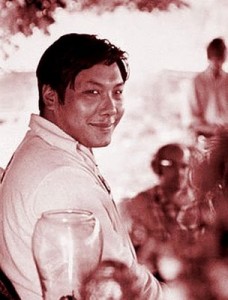 When Chogyam Trungpa Rinpoche, a great (though controversial) Tibetan master, first came to this country, he was renown for always saying, when asked the meaning of Vajrayana, “There is only Ati.” In other words, there is only the enlightened mind wherever you look. The ego, samsara, maya and illusion — all of them do not have to be gotten rid of, because none of them actually exist: There is only Ati, there is only Spirit, there is only God, there is only nondual Consciousness anywhere in existence.
When Chogyam Trungpa Rinpoche, a great (though controversial) Tibetan master, first came to this country, he was renown for always saying, when asked the meaning of Vajrayana, “There is only Ati.” In other words, there is only the enlightened mind wherever you look. The ego, samsara, maya and illusion — all of them do not have to be gotten rid of, because none of them actually exist: There is only Ati, there is only Spirit, there is only God, there is only nondual Consciousness anywhere in existence.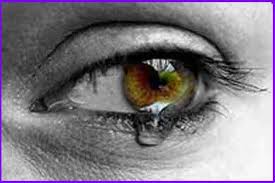 Tears or their absence in every culture across time are considered the signposts of spirit glimmerings of eternity and whisperings of divinity. Tears are the divine whisper which utters the secret of our destiny in a tear drop. Heinrich Heine cries out in ecstatic rapture, “What poetry there is in tears;” Hebrew Wisdom would add, “What Wisdom there is in tears.”
Tears or their absence in every culture across time are considered the signposts of spirit glimmerings of eternity and whisperings of divinity. Tears are the divine whisper which utters the secret of our destiny in a tear drop. Heinrich Heine cries out in ecstatic rapture, “What poetry there is in tears;” Hebrew Wisdom would add, “What Wisdom there is in tears.” Unique Self mystics in the old Aramaic texts spoke of two paths, itcafya and ithapcha.
Unique Self mystics in the old Aramaic texts spoke of two paths, itcafya and ithapcha. The rapist, the corporate raider, the Don Juan, and the conqueror are always taking. The sad result is that they never give and therefore never receive. Therefore, the more they take, the less they have. As a result they always remain empty. For many of the biblical mystics, the symbol of conquest was Alexander the Great. He took almost the entire known world of his day. Yet, insisted the masters, without becoming a lover, Alexander would necessarily remain empty.
The rapist, the corporate raider, the Don Juan, and the conqueror are always taking. The sad result is that they never give and therefore never receive. Therefore, the more they take, the less they have. As a result they always remain empty. For many of the biblical mystics, the symbol of conquest was Alexander the Great. He took almost the entire known world of his day. Yet, insisted the masters, without becoming a lover, Alexander would necessarily remain empty.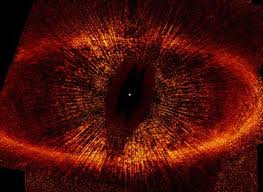 According to Hayyim Vital, the premier student and mystical partner to Isaac Luria, leader of the great renaissance school of Kabbalah in Safed:
According to Hayyim Vital, the premier student and mystical partner to Isaac Luria, leader of the great renaissance school of Kabbalah in Safed:

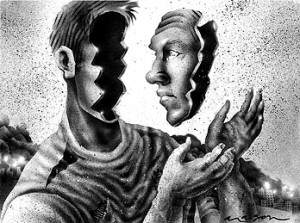 Divinity has one ultimate secret, which it will also whisper in your ear if your mind becomes quieter than the fog at sunset: the God of this world is found within, and you know it is found within: in those hushed silent times when the mind becomes still, the body relaxes into infinity, the senses expand to become one with the world–in those glistening times, a subtle luminosity, a serene radiance, a brilliantly transparent clarity shimmers as the true nature of all manifestation, erupting every now and then in a compassionate Radiance before whom all idols retreat, a Love so fierce it adoringly embraces both light and dark, both good and evil, both pleasure and pain equally; for “I make the Light to fall on the good and bad alike; I the Lord do all these things”; a passionately embroiling Heat so painful it will melt your bones while you hurl yourself to the ground with awe and supplication and reverence and surrender.
Divinity has one ultimate secret, which it will also whisper in your ear if your mind becomes quieter than the fog at sunset: the God of this world is found within, and you know it is found within: in those hushed silent times when the mind becomes still, the body relaxes into infinity, the senses expand to become one with the world–in those glistening times, a subtle luminosity, a serene radiance, a brilliantly transparent clarity shimmers as the true nature of all manifestation, erupting every now and then in a compassionate Radiance before whom all idols retreat, a Love so fierce it adoringly embraces both light and dark, both good and evil, both pleasure and pain equally; for “I make the Light to fall on the good and bad alike; I the Lord do all these things”; a passionately embroiling Heat so painful it will melt your bones while you hurl yourself to the ground with awe and supplication and reverence and surrender.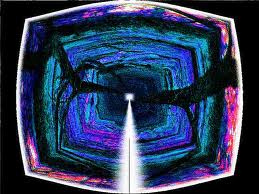 God is the possibility of possibility – limitless imagination. The first of the ten commandments is “I am God.” When this God is asked to identify himself, He responds, “I will be what I will be.” That is, ”˜You cannot capture me in the frozen image of any time or place. To do so would be to destroy me.’ It would be to violate the second commandment against idolatry. Idolatry is the freezing of God in a static image. To freeze God in an image is to violate the invitation of the imagination. It is to limit possibility.
God is the possibility of possibility – limitless imagination. The first of the ten commandments is “I am God.” When this God is asked to identify himself, He responds, “I will be what I will be.” That is, ”˜You cannot capture me in the frozen image of any time or place. To do so would be to destroy me.’ It would be to violate the second commandment against idolatry. Idolatry is the freezing of God in a static image. To freeze God in an image is to violate the invitation of the imagination. It is to limit possibility.